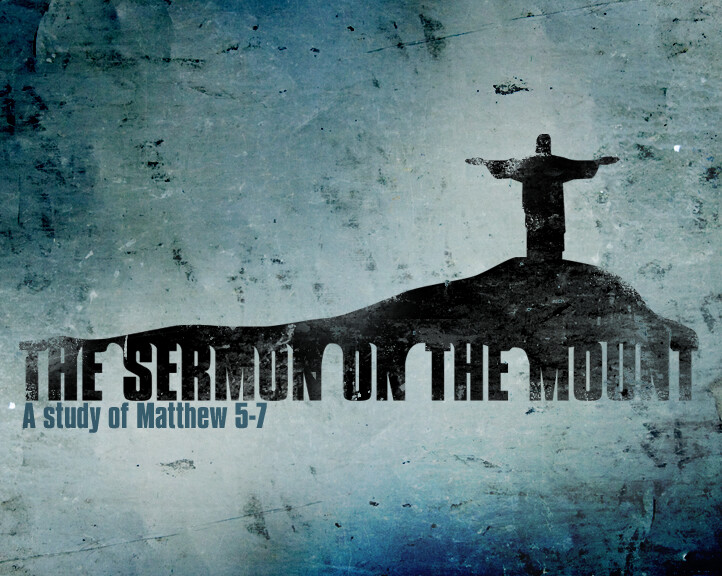His way or the highway
Matthew 7:13-14

This is my least favorite bumper sticker of all time.
The message, as I understand it, is two-fold: (1) it doesn’t matter what you believe if you’re sincere and (2) if everyone is sincere about what they believe then everyone can just get along. It sounds good, but it’s naïve at best and destructive at worst. Let me explain.
First, it doesn’t matter what you believe if you’re sincere. This sounds good, but it doesn’t stand up to scrutiny. What if what you believe is wrong? You may be sincere, but you are sincerely wrong.
Second, if everyone is sincere about what they believe then everyone can just get along. This too sounds good and on one level it should be able to happen. But on the level where its real meaning resides, it also doesn’t stand up to scrutiny. In this case, “get along” usually means let’s agree that everyone is right in what they choose to believe.
That’s true in matters of opinion and subjectivity. For example, I like scrapple and spam. I know some of you don’t like either of them and we can get along because they are matters of taste and opinion. But in objective matters, we can’t agree that everyone is right no matter what they believe. So, if you have a car I like, and I think it’s ok to steal it while you believe theft is a crime, we can’t both be right at the same time. In fact, you would be right because there is an objective law—a law not influenced by personal feelings, interpretations or prejudice; a law based on the fact of the criminal code—that says it is a crime for me to steal your car. Do you understand what I’m saying?
Now, when it comes to spiritual truth, we are not dealing with subjective tastes and opinions like the scrumptiousness of scrapple and spam. We are dealing with the objective truth of God and his word and this is important because what a person believes about God is the most important thing about them…and we do not all believe the same things about God.
Jesus is a popular guy and his teaching is popular. We have been focusing on some of his teaching in this series – love your enemy, forgive those who wrong you, treat others the way you want to be treated, etc. The rub is that Jesus didn’t come to be a popular guy who taught a “be a better person” kind of morality. He came and made an exclusive claim regarding spiritual truth:
John 14:6 (NIV84) – I am the way and the truth and the life. No one comes to the Father except through me.
The apostle Peter reiterated this exclusive claim when he stood before the Jewish supreme court and said, “Salvation is found in no one else, for there is no other name under heaven, given to men by which we must be saved” (Acts 4:12).
The exclusive nature of the gospel is an obstacle to those who want us to simply COEXIST because what a person believes matters and what a person believes about God matters more than anything else in this life. Let’s take a few minutes to consider why the idea of COEXISTENCE isn’t just a bad idea…but to consider why it is impossible in the way those with the bumper stickers mean it.
We’re going to look at 5 different religions: Christianity, Judaism, Islam, Hinduism, and Buddhism. We’ll survey them in just three areas of belief—God, redemption, and the afterlife.
|
|
Monotheistic Religions |
Polytheistic (Many gods) |
No God |
||
|
Christianity |
Judaism |
Islam |
Hinduism |
Buddhism |
|
|
God |
Trinity |
Yahweh |
Allah |
Many: Brahma, Vishnu, Shiva, etc. |
None |
|
Redemption |
Confession & repentance |
Prayer & study |
Faith & works |
Karma |
Enlightenment |
|
Afterlife |
Heaven or Hell |
Heaven or hell |
Heaven or hell |
Reincarnation |
Nirvana |
We cannot accept the idea of COEXISTENCE or it doesn’t matter what you believe if you are sincere for at least two reasons:
- The major religions of the world are unanimous in the assertion that there are important fundamental differences between them.
- The exclusive claims of the gospel.
- Either Jesus is the only way, or he isn’t.
- It cannot be both ways!
I already read Jesus’ words about being the way, the truth, and the life. Now, let’s look at his words in the next section of the Sermon on the Mount.
Matthew 7:13–14 (NIV84)
13 “Enter through the narrow gate. For wide is the gate and broad is the road that leads to destruction, and many enter through it. 14 But small is the gate and narrow the road that leads to life, and only a few find it.
As we move into these final fours sections of the Sermon on the Mount. I want you to pay attention to something in your Bible or in a pew Bible or in the Bible app. This is one of those times when section headings are helpful. Take note of…
- The section heading for verses 13-14 –The Narrow and Wide Gates
- The section heading for verses 15-20—True and False Prophets
- The section heading for verses 21-23—True and False Disciples
- The section heading for verses 24-27—The Wise and Foolish Builders
Note that each of these sections will draw a contrast between only two possibilities. Starting today—and continuing for the next three messages after this—we will essentially hear different versions of the same message—when it comes to spiritual truth, there are only two option—Jesus, or not Jesus. And only one of those options is correct!
In verses 13-14, Jesus said there are two gates, two roads, two destinations, and two groups of people. Each is a variation on the theme that there are only two options and one choice between them.[1]
We would prefer to be given many choices or to fuse them all into one religion, eliminating the need for choice. But Jesus doesn’t allow that. He insists that ultimately there is only one choice because there are only two possibilities to choose from.
First, there are the two ways. One way is wide and easy. There is plenty of room for diversity of opinion and indifference to morality. It is the road of tolerance and permissiveness. There are no boundaries of thought or behavior. Travelers on this road can follow the desires of the heart in all its fallenness. That’s why the way is broad and easy.
The hard way is narrow. Its boundaries are clearly marked. God’s divine revelation restricts travelers to the territory of what God has revealed in Scripture to be true and good.
Second, there are two gates. The gate leading to the easy way is wide and it freely swings open to all who would pass through it. There is no limit to the baggage we can take with us. We don’t have to leave anything behind—not our sins, not our self-righteousness, not or our pride.
The gate leading to the hard way is narrow. To enter it, we must leave everything behind—our sin, our self-righteousness, our pride…and even our family and friends if necessary because we cannot follow Christ without denying ourselves.
Third, there are two destinations. The easy way leads to destruction. Jesus did not define what he meant by that. I suppose that the exact nature of hell is beyond our understanding just as the exact nature of heaven is. Now, think about the word ‘destruction’ for a moment. It is a troubling word because God is the Creator, not the Destroyer, and people are created to live, not to die...and yet the easy way leads to destruction.
The hard way, on the other hand, is accessed by the narrow gate and leads to life—eternal life in the hereafter and a richer and more satisfying life in the here and now.
Fourth, there are two crowds. Many enter through the wide gate and travel along the easy road to destruction. The narrow and hard way which leads to life seems to be traveled by fewer people than the wide and easy road. We cannot draw our conclusions or build our lives on the current direction of the crowd. We must walk in God’s direction.
Let’s quickly review. (1) According to Jesus, there are only two ways (there is no middle way); (2) those ways are entered by two gates, (there is no other one); (3) two crowds choose which gate to pass through, (there is no neutral group); (4) and those ways lead to one of two destinations, destruction or life (there is no other alternative).
People don’t like this kind of talk today. They want options, but they don’t necessarily like to choose. But Jesus will not allow us to escape the choice.
After Jesus’ teaching in the Sermon on the Mount, he told those who would follow him that the way would not be easy. It wouldn’t be the way of the religious leaders. It wouldn’t be the way of religious hypocrites. It wouldn’t be the way of the crowds. It would be God’s way, on God’s terms. And by pointing this out, he was telling them that they had a choice to make. The time for a decision had come.
That is still true today. You and I don’t come to God on our terms, we come on his terms…and his terms are found in the person of Jesus Christ who gave his life to be our Savior.
The only question is, will we follow him on his terms? They begin with acknowledging our sin, believing in God’s gift of grace, and confessing our sin, and deciding to follow Christ. They continue as we learn to live our lives on his terms as they are revealed in Scripture.
Pastor Kristin has been playing the song, “I Have Decided.” As she begins to sing it, if it is your desire to follow Christ, please stand with me. You might be making that commitment for the first time or you might be renewing your commitment to Christ; it doesn’t matter. Stand and pray with me. Those of you know how to pray, tell God what’s on your heart. If you don’t know how to pray, repeat after me.
[1] This section is adapted from, Stott, John. The Message of the Sermon on the Mount (The Bible Speaks Today Series) (pp. 193-196). InterVarsity Press. Kindle Edition.
Series Information

Over the course of three chapters in Matthew (5-7), we read some of Jesus' most challenging teaching. This series will exam this "Sermon on the Mount" section by section to see what we can learn.
